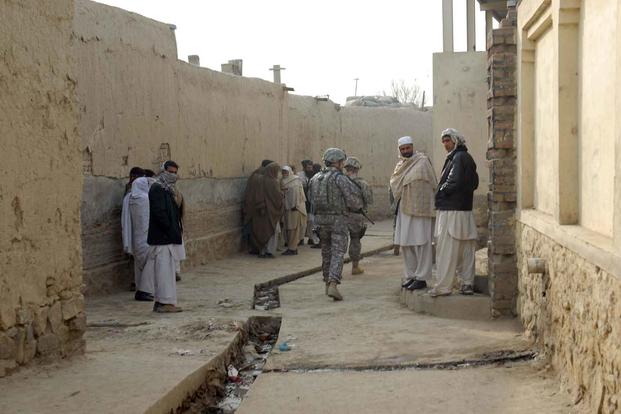The Pentagon does not expect the U.S. military's withdrawal from Afghanistan to result in a chaotic "fall of Saigon"-type evacuation from Kabul, Deputy Secretary of Defense Kathleen Hicks said Friday.
While answering questions during a virtual forum on the Biden administration's first 100 days hosted by The Aspen Institute, Hicks stressed that the military is focusing on a "safe, orderly, disciplined withdrawal process" over the next few months.
But, she said, the forces that are there until then will have the ability to defend themselves.
Read Next: Biden on Making COVID Vaccine Mandatory for Troops: 'I'm Going to Leave It to the Military'
Hicks said that the United States now has a wide slate of counterterrorism tools, including more unmanned systems and better collaboration between intelligence agencies and allies, that didn't exist before 9/11.
"It's not 2001, it's 2021," she said. "As we do in almost every other part of the world, executing on our counterterrorism mission without having substantial forces on the ground is the general way in which we approach counterterrorism."
Hicks declined to provide operational details of how an "over-the-horizon" counterterror response, as President Joe Biden described it, would work. But, she said, "It's fair to say we're thinking through all the contingency operations," and that the military's effort to help Afghanistan will support a primarily diplomatic approach.
"We've removed al-Qaida and demonstrated that we will not tolerate it being a safe haven for use against United States citizens and territory," she said. "And we will continue to ... hold the Taliban and any other actors inside Afghanistan responsible for not living up to those expectations."
When asked how much of the Pentagon's planning assumes the collapse of Afghan security forces and the fall of the government in Kabul, Hicks did not answer directly. Instead, she reiterated that the U.S. government will ensure Afghanistan cannot again become a safe haven for terrorists.
Hicks added that the U.S. continues to support a negotiated settlement between the government in Kabul and the Taliban. But, she said, "that is not central to how the United States plans for itself, both in terms of the over-the-horizon capability and any enduring interest we have in Afghanistan as it relates to terrorism."
After Saturday, when the withdrawal process officially begins, the U.S. will continue providing support -- including air support -- to NATO and Afghan allies, Hicks said.
During a press conference Tuesday, Pentagon Press Secretary John Kirby caused some confusion about whether air support to the Afghans would continue during the withdrawal, before later clarifying that no decision had been made to change or reduce air support.
-- Stephen Losey can be reached at stephen.losey@military.com. Follow him on Twitter @StephenLosey.
Related: Emptiness, Anger, Relief: Afghanistan Veterans Wrestle with Coming End of 'Forever War'













